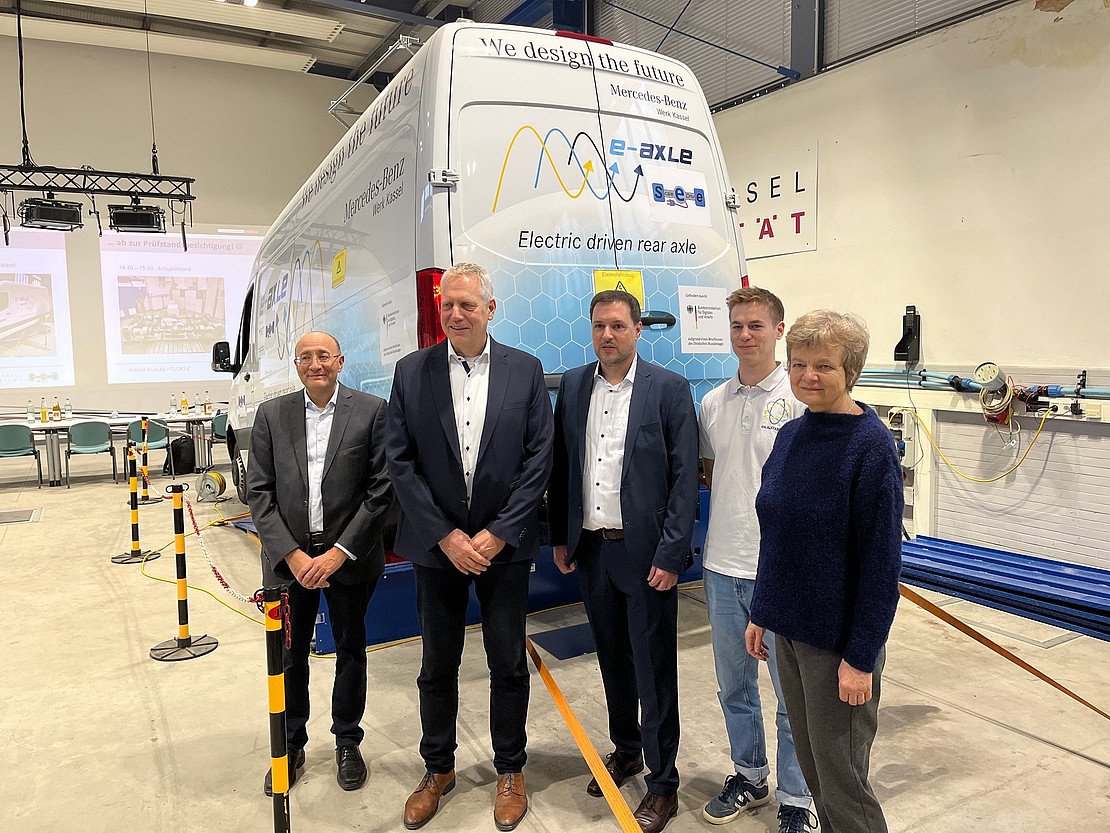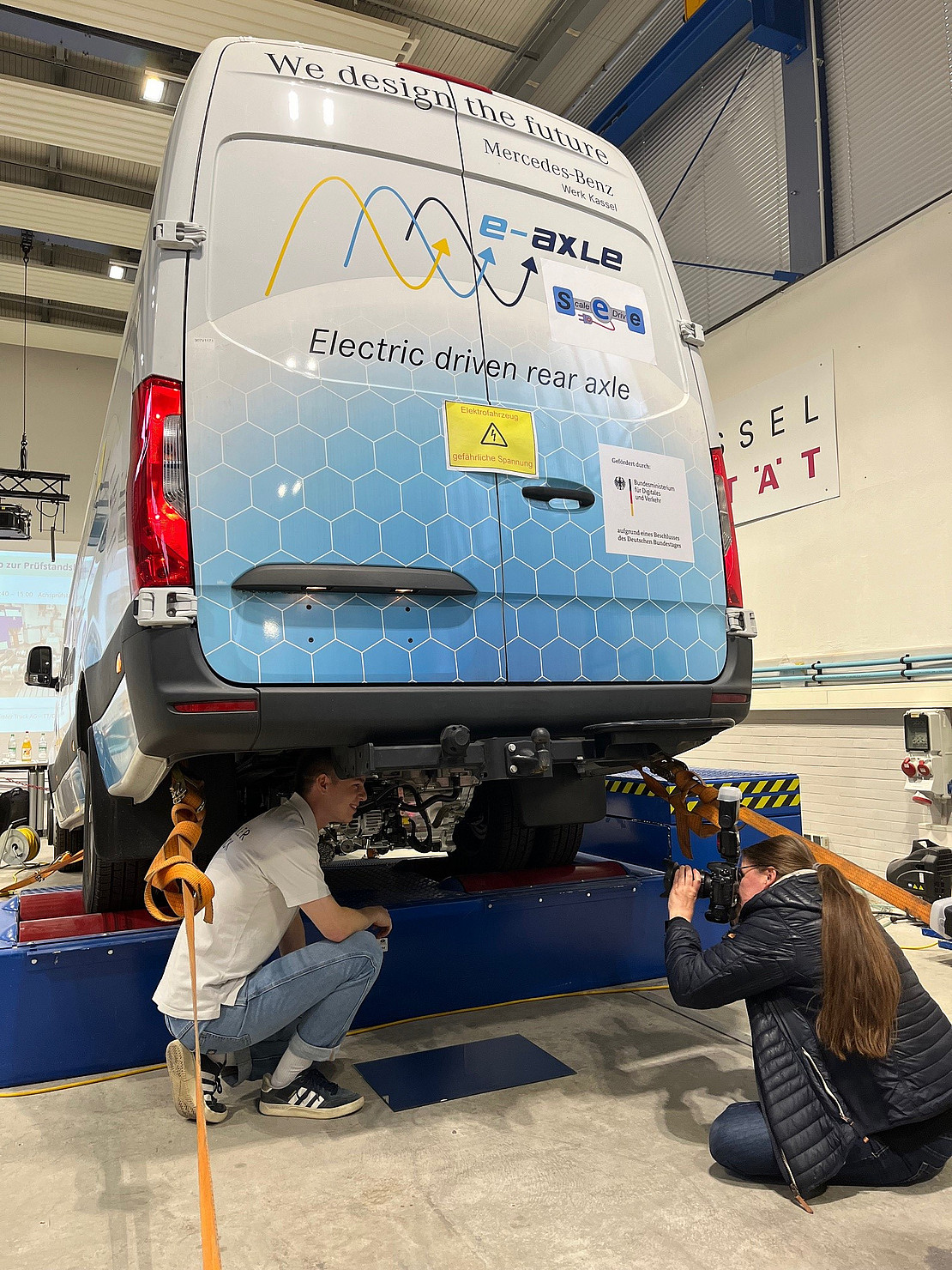This page contains automatically translated content.
Researchers at the University of Kassel develop new transmission for electric commercial vehicles
 Image: University of Kassel.
Image: University of Kassel. Image: University of Kassel.
Image: University of Kassel.The introduction of electromobility in the commercial vehicle sector, for example in minibuses or delivery vehicles, has been difficult to date. One of the main reasons for this is the lack of technically suitable vehicles on offer, particularly from German car manufacturers. The technical hurdles are the high demands placed on commercial vehicles, the comparatively low quantities in economic terms and the associated high development costs with the problem of timely market launch.
Simply transferring electric drives from the passenger car sector to commercial vehicles is not a solution: high power reserves would be required to meet the torque and speed requirements at the same time. This would increase costs, volume and weight and would also be disadvantageous in terms of energy. In the project "Scaling effects through modular drive architectures for commercial vehicles", or "Scale-E-Drive" for short, the researchers involved solved the problem with a newly designed two-speed gearbox and a newly developed operating strategy that makes use of the high dynamics of the electric motor and intelligent temperature management.
As a result, lightweight and cost-effective electric drives (including converters) from the passenger car sector can also be applied in commercial vehicles in an energy-efficient manner. This enables scaling effects as well as significantly reduced development costs and risks. The basic research objective of the project is to cover the highly variable and demanding driving dynamics requirements. Firstly, a highly dynamic shift strategy was developed to implement the gear changes in the multi-speed gearbox efficiently and without compromising comfort. Secondly, a predictive driving strategy was developed that anticipates the most energy-efficient driving strategies based on current usage behavior.
In the Scale-e-Drive project, a team led by Prof. Dr.-Ing. Michael Fister (Department of Mechatronics with a focus on vehicles) and Prof. Dr.-Ing. Mohamed Ayeb (Vehicle Systems and Fundamentals of Electrical Engineering) worked together with Daimler Truck AG, Kassel plant. The research project was funded with around 1.8 million euros by the Federal Ministry of Transport and Digital Infrastructure (funding guideline for electric mobility) and coordinated by NOW GmbH National Organization Hydrogen and Fuel Cell Technology.
Press contact:
Sebastian Mense
University of Kassel
Office Communication and Marketing
Phone: +49 561 804-1961
Email: presse[at]uni-kassel[dot]de
www.uni-kassel.de